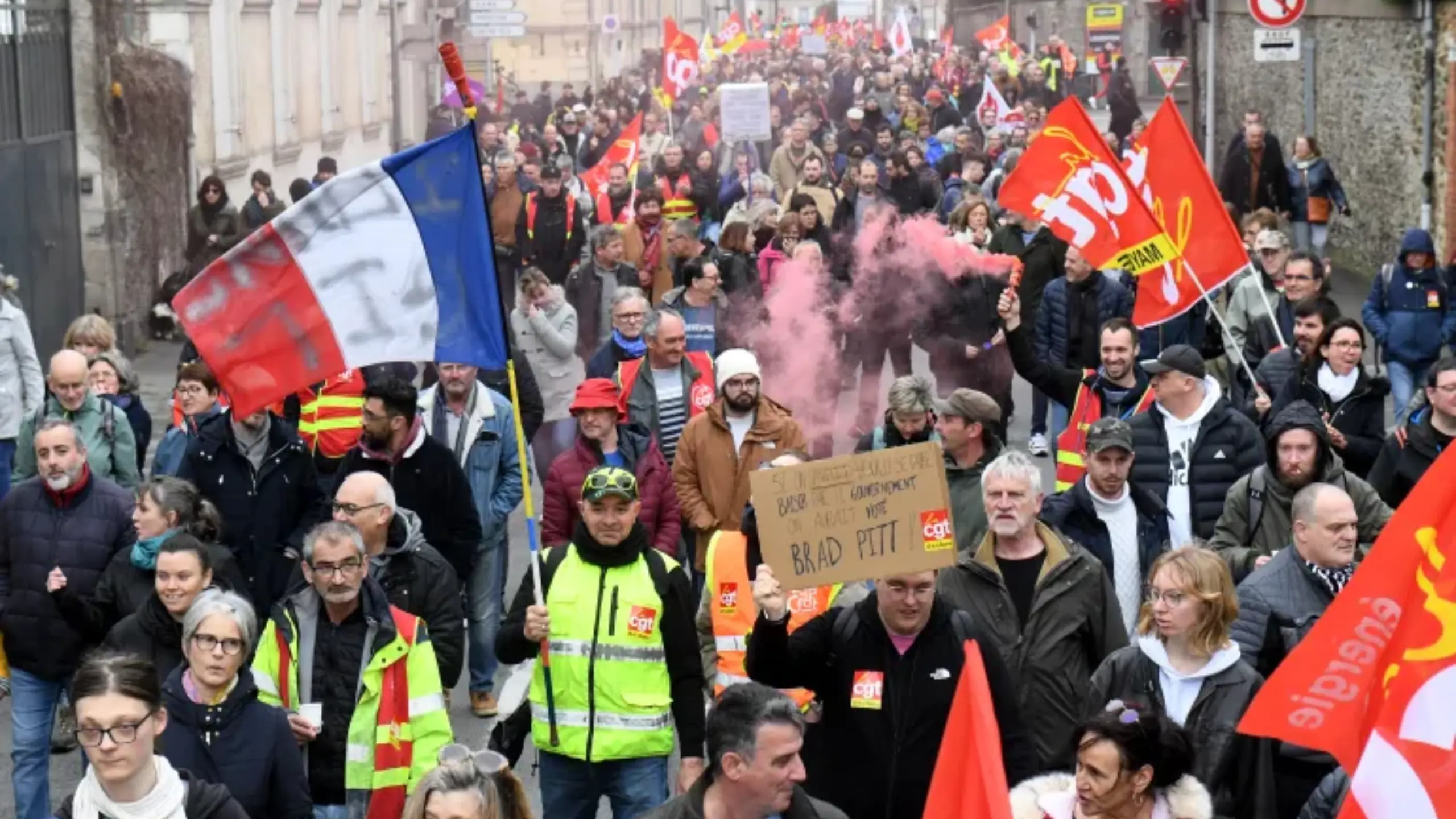Paris, France Protests, has seen a boom in demonstrations in recent years, capturing the attention of both local and international audiences. These protests, characterized by fervent crowds and flamboyant shows of dissent, have come to symbolize the city’s sociopolitical instability. This article digs into the complexities of the Paris France Protests, investigating the historical backdrop, causes, important actors, tactics, government reaction, social effect, and worldwide ramifications.
Historical Context: A Legacy of Activism
Since the French Revolution and the May 1968 uprisings, Paris has had a long history of activism. The city has historically been a gathering place for artists, thinkers, and activists campaigning for social reform. This tradition of activism has instilled a sense of protest in the collective consciousness of Parisians, molding their propensity to go to the streets and express their dissatisfaction.
Triggers for Recent Protests
Several things have contributed to the current Paris demonstrations. The country’s economic disparities are a crucial trigger. Many residents feel marginalized and left behind as a result of globalization and the growing income disparity. Furthermore, planned policy changes, such as revisions to labor laws and pension systems, have provoked considerable dissatisfaction among many parts of the public.
Key Participants and Demands
Students, laborers, trade unions, and grassroots groups are among those taking part in the Paris demonstrations. These organizations get together to advocate for changes in areas such as economic inequality, social justice, climate change, and democratic government. Their demands reflect a desire for a more equitable and inclusive society.
Tactics and Strategies of Protesters
Protesters in Paris use a variety of strategies to spread their message and garner attention. Common forms of mobilization include peaceful marches, sit-ins, and rallies. Social media channels are important for organizing and sharing information about impending demonstrations. Acts of civil disobedience and conflicts with police enforcement have occurred during certain protests, sparking discussion over the acceptable bounds of protest.
Government Response and Countermeasures
The French government’s reaction to the demonstrations has been a combination of concessions and crackdowns. In other cases, politicians have revised policies or participated in communication with protest leaders. However, there have been instances of harsh methods, such as the deployment of tear gas and arrests. Human rights organizations have criticized the government’s stance, citing worries about the preservation of civil freedoms.
Impact on Society and Politics
The Paris France Protests had a significant influence on society and politics. The protests have generated togetherness among various groups, establishing a common space for debate and solidarity. They’ve also drawn attention to important topics and stirred national discussions. Politically, the demonstrations have affected public opinion, modified policy agendas, and even caused major government leaders to quit.
International Repercussions
The Paris demonstrations have resonated beyond national lines, enthralling the worldwide community. The demonstrators’ message has been reinforced by media attention and social media action, gathering support and spreading awareness abroad. The Paris events sparked similar rallies and demonstrations in other countries, showing the global interconnectivity of social and political concerns.
Future Outlook
The fate of the Paris France demonstrations is unknown. The demonstrators’ frustrations are firmly based on systemic flaws that demand long-term remedies. The government must address its residents’ concerns through encouraging conversation and inclusive policies. Failure to do so may result in increased polarization and long-term instability. All parties must participate in positive dialogue and strive towards long-term change.
Conclusion
The Paris France demonstrations are a striking tribute to democracy’s vitality and the power of collective action. They show the intricacies of today’s sociopolitical concerns, as well as people’s tenacity to fight for their rights and objectives. As the demonstrations progress, it is critical to identify the underlying concerns and strive towards fair and inclusive solutions.
FAQs
- Are the protests in Paris limited to a specific demographic?
No, the protests in Paris involve a diverse range of participants from various social and economic backgrounds, reflecting the widespread discontent within society.
- Have the protests in Paris led to any concrete policy changes?
Yes, the protests have influenced policy agendas and prompted policymakers to reconsider certain reforms. However, the extent of policy changes varies, and some demands of the protesters remain unmet.
- How have the protests impacted daily life in Paris?
The protests have occasionally disrupted daily life in Paris, leading to temporary closures of schools, transportation disruptions, and occasional clashes with law enforcement. However, life generally continues with necessary adjustments.
- Are the protests solely driven by economic concerns?
No, while economic concerns play a significant role, the protests also address broader issues such as social justice, climate change, and democratic governance.

